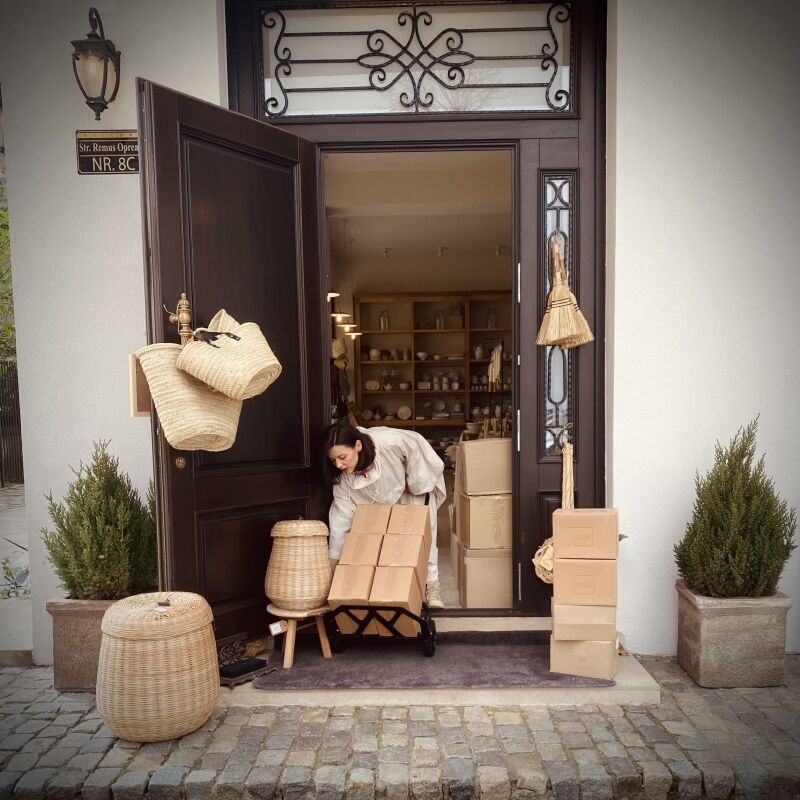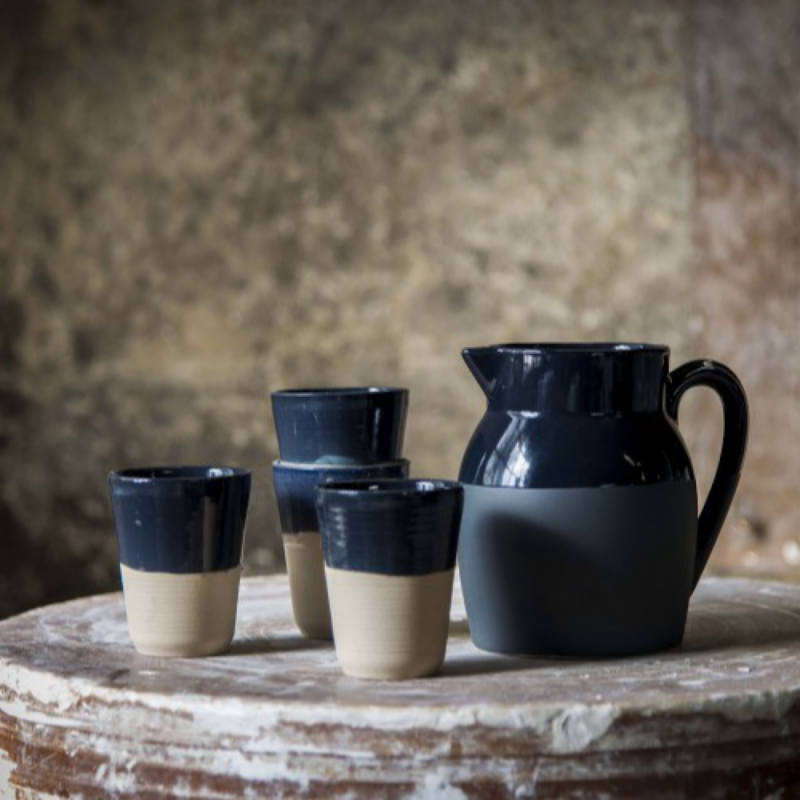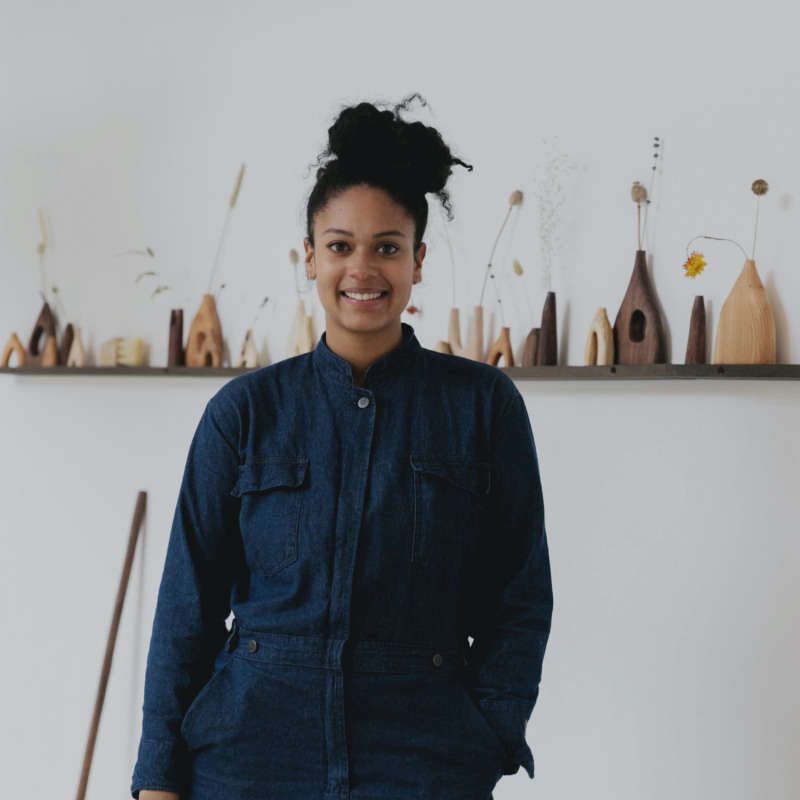A recent workshop with the young, flame-haired brush maker, Rosa Harradine, prompted us to find out more about her journey into craft and her plans for the future.
Photography courtesy of TOAST.

Rosa was “discovered” this year by the lifestyle and clothing brand TOAST, as one of five New Makers. “I saw the New Makers program online and applied without any expectation that I would be selected,” she recalls. “I feel very lucky that I was. It’s a brilliant program, not only do I receive a platform from which to sell my work, but also business training and advice.”
Rosa began making brushes just last year after studying for a degree in music. “I play the clarinet, saxophone, and piano,” says Rosa. “But after graduating I was searching for something that would make my life more meaningful—that’s how I got into craft.”

Rosa experimented with carving wooden spoons, willow weaving, and bowl turning before she discovered brush making. “I’ve always taken an interest in homewares and appreciated the pleasure of using handmade items,” she explains. “I think it’s important that everyday objects are produced locally and from natural materials where possible. I came across the traditions of brush and broom making last year and was inspired by the work of others around the world.”

Rosa’s brushes embody both ancient craft and contemporary design, as the cord is asymmetrically tied down the bristles, giving each object a graphic appeal that caught the eye of the TOAST design team.
The brushes are made from plant fibers and hemp thread in Rosa’s garden workshop in Carmarthen, Wales. Rosa uses entirely natural, sustainably sourced materials: tampico and arenga plant fibers for the bristles, and hemp thread and cotton handles to tie it all together. “Tampico comes from Mexico,” Rosa explains. “The fibers are made from the leaves, which look a bit like Aloe Vera. A new leaf grows from where the old one was snapped off. Arenga comes from the Arenga Pinnata palm tree, which grows in Indonesia. Again, the fiber is produced from the leaf. The hemp cord is produced in Eastern Europe and is grown organically, ethically sourced, and dyed using environmentally friendly dyes.

The technique is slow and meditative and involves using both hands and feet. “The thread is wrapped around a rolling pin which is held in place underneath the feet—this creates the tension you need to tightly bunch the bristles together. Rosa divides each bundle of bristles into eight equal parts, before wrapping each individual bundle together, adding another, then another, until the brush is formed. To finish, the thread is pulled behind itself to lock it into place and a cotton handle is added.

The birds and rain provide the soundtrack to Rosa’s working day, while the local beaches and hills provide inspiration. “My next collection will be full of lots of blues and browns, inspired by the sea and the earth,” she says. She also has plans to launch a collection of full-size brooms in the next couple of months. “This is really exciting because the wooden handles are harvested from my own woodland,” she says. “In the future, I hope to grow the fiber for the brooms on my own land too.”

I ask Rosa if she thinks her musical training has informed her craft: “It undoubtedly has,” she replies. “From music, I have learned the art of practice, of consistent, small improvements, and of attention to detail. Though I enjoy music, I have rarely found myself in the same meditative flow state that making provides me.”
Rosa will be offering workshops in brush making later this year; follow @rosaharradine for updates.




Have a Question or Comment About This Post?
Join the conversation (2)